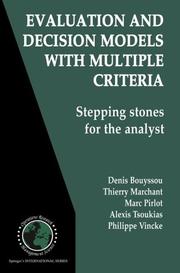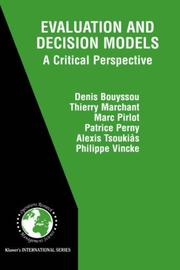| Listing 1 - 10 of 62 | << page >> |
Sort by
|
Dissertation
Abstract | Keywords | Export | Availability | Bookmark
 Loading...
Loading...Choose an application
- Reference Manager
- EndNote
- RefWorks (Direct export to RefWorks)
Dissertation
Abstract | Keywords | Export | Availability | Bookmark
 Loading...
Loading...Choose an application
- Reference Manager
- EndNote
- RefWorks (Direct export to RefWorks)
Dissertation
Abstract | Keywords | Export | Availability | Bookmark
 Loading...
Loading...Choose an application
- Reference Manager
- EndNote
- RefWorks (Direct export to RefWorks)
Dissertation
Abstract | Keywords | Export | Availability | Bookmark
 Loading...
Loading...Choose an application
- Reference Manager
- EndNote
- RefWorks (Direct export to RefWorks)
Dissertation
Abstract | Keywords | Export | Availability | Bookmark
 Loading...
Loading...Choose an application
- Reference Manager
- EndNote
- RefWorks (Direct export to RefWorks)
Dissertation
Abstract | Keywords | Export | Availability | Bookmark
 Loading...
Loading...Choose an application
- Reference Manager
- EndNote
- RefWorks (Direct export to RefWorks)

ISBN: 0387310983 9780387310985 0387310991 1441940537 9786610612390 1280612398 Year: 2006 Publisher: New York, N.Y. Springer
Abstract | Keywords | Export | Availability | Bookmark
 Loading...
Loading...Choose an application
- Reference Manager
- EndNote
- RefWorks (Direct export to RefWorks)
Formal decision and evaluation models are sets of explicit and well-defined rules to collect, assess, and process information in order to be able to make recommendations in decision and/or evaluation processes. They are so widespread that almost no one can pretend not to have used or suffered the consequences of one of them. In our earlier companion volume, Evaluation and Decision Models, we heavily criticised formal models but we also argued that they could be useful. On the other hand, Evaluation and Decision Models with Multiple Criteria is a guide, a way of reasoning aimed at helping the analyst to choose a model and use it consistently. We propose, often using an axiomatic point of view, a sound analysis of techniques aimed at supporting the decision aiding process. Our presentation is carried out within a unique framework that can be extended to most decision and evaluation models, as a "decision aiding methodology". Evaluation and Decision Models with Multiple Criteria is intended for the aware or enlightened practitioner, for anyone who uses decision or evaluation models---for research or for applications---and is willing to question his practice, to have a deeper understanding of what he does. The authors of this book are European academics working in four different universities and research institutions. They teach in engineering, mathematics, computer science and psychology schools. Their background is quite varied: mathematics, economics, engineering, law and geology, but they are all active in decision support and more particularly in multiple criteria decision support. Preference modelling, fuzzy logic, aggregation techniques, social choice theory, artificial intelligence, problem structuring, measurement theory and Operational Research are among their special interests. The authors are active in theoretical research on the foundations of decision aiding, mainly from an axiomatic point of view. Moreover, all the authors have been involved and continue to be engaged in a wide range of applications from software evaluation to location of a nuclear repository, through the rehabilitation of a sewer network or the location of high-voltage lines.
Planning (firm) --- Operational research. Game theory --- Decision making. --- Operations research. --- Prise de décision --- Recherche opérationnelle --- Management --- Business & Economics --- Management Theory --- Multiple criteria decision making --- Operations research --- Operations Research --- Civil & Environmental Engineering --- Engineering & Applied Sciences --- Operational analysis --- Operational research --- Deciding --- Decision (Psychology) --- Decision analysis --- Decision processes --- Making decisions --- Management decisions --- Decision making --- Business. --- Management. --- Industrial engineering. --- Production engineering. --- Engineering economics. --- Engineering economy. --- Economic theory. --- Econometrics. --- Business and Management. --- Operation Research/Decision Theory. --- Engineering Economics, Organization, Logistics, Marketing. --- Industrial and Production Engineering. --- Economic Theory/Quantitative Economics/Mathematical Methods. --- Industrial engineering --- Management science --- Research --- System theory --- Choice (Psychology) --- Problem solving --- Operations Research/Decision Theory. --- Administration --- Industrial relations --- Organization --- Economic theory --- Political economy --- Social sciences --- Economic man --- Management engineering --- Simplification in industry --- Engineering --- Value analysis (Cost control) --- Economy, Engineering --- Engineering economics --- Economics, Mathematical --- Statistics --- Manufacturing engineering --- Process engineering --- Mechanical engineering

ISBN: 0792372506 1461356318 1461515939 9780792372509 Year: 2000 Publisher: Boston (Mass.) : Kluwer academic,
Abstract | Keywords | Export | Availability | Bookmark
 Loading...
Loading...Choose an application
- Reference Manager
- EndNote
- RefWorks (Direct export to RefWorks)
1. 1 Motivations Deciding is a very complex and difficult task. Some people even argue that our ability to make decisions in complex situations is the main feature that distinguishes us from animals (it is also common to say that laughing is the main difference). Nevertheless, when the task is too complex or the interests at stake are too important, it quite often happens that we do not know or we are not sure what to decide and, in many instances, we resort to a decision support technique: an informal one-we toss a coin, we ask an oracle, we visit an astrologer, we consult an expert, we think-or a formal one. Although informal decision support techniques can be of interest, in this book, we will focus on formal ones. Among the latter, we find some well-known decision support techniques: cost-benefit analysis, multiple criteria decision analysis, decision trees, . . . But there are many other ones, sometimes not presented as decision support techniques, that help making decisions. Let us cite but a few examples. • When the director of a school must decide whether a given student will pass or fail, he usually asks each teacher to assess the merits of the student by means of a grade. The director then sums the grades and compares the result to a threshold. • When a bank must decide whether a given client will obtain a credit or not, a technique, called credit scoring, is often used.
Decision Making. --- Operations research. --- Decision making. --- Planning (firm) --- Operational research. Game theory --- Prise de décision --- Recherche opérationnelle --- Decision making --- Production management. --- Operations Research/Decision Theory. --- Operations Management. --- Manufacturing management --- Industrial management --- Deciding --- Decision (Psychology) --- Decision analysis --- Decision processes --- Making decisions --- Management --- Management decisions --- Choice (Psychology) --- Problem solving --- Operational analysis --- Operational research --- Industrial engineering --- Management science --- Research --- System theory
Book
ISBN: 9781441940537 Year: 2006 Publisher: London : Springer,
Abstract | Keywords | Export | Availability | Bookmark
 Loading...
Loading...Choose an application
- Reference Manager
- EndNote
- RefWorks (Direct export to RefWorks)
Dissertation
Abstract | Keywords | Export | Availability | Bookmark
 Loading...
Loading...Choose an application
- Reference Manager
- EndNote
- RefWorks (Direct export to RefWorks)
| Listing 1 - 10 of 62 | << page >> |
Sort by
|

 Search
Search Feedback
Feedback About UniCat
About UniCat  Help
Help News
News